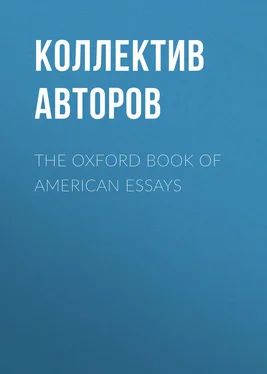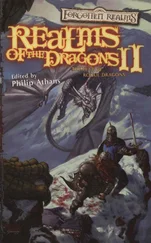Коллектив авторов - The Oxford Book of American Essays
Здесь есть возможность читать онлайн «Коллектив авторов - The Oxford Book of American Essays» — ознакомительный отрывок электронной книги совершенно бесплатно, а после прочтения отрывка купить полную версию. В некоторых случаях можно слушать аудио, скачать через торрент в формате fb2 и присутствует краткое содержание. Жанр: foreign_antique, foreign_prose, на английском языке. Описание произведения, (предисловие) а так же отзывы посетителей доступны на портале библиотеки ЛибКат.
- Название:The Oxford Book of American Essays
- Автор:
- Жанр:
- Год:неизвестен
- ISBN:нет данных
- Рейтинг книги:5 / 5. Голосов: 1
-
Избранное:Добавить в избранное
- Отзывы:
-
Ваша оценка:
- 100
- 1
- 2
- 3
- 4
- 5
The Oxford Book of American Essays: краткое содержание, описание и аннотация
Предлагаем к чтению аннотацию, описание, краткое содержание или предисловие (зависит от того, что написал сам автор книги «The Oxford Book of American Essays»). Если вы не нашли необходимую информацию о книге — напишите в комментариях, мы постараемся отыскать её.
The Oxford Book of American Essays — читать онлайн ознакомительный отрывок
Ниже представлен текст книги, разбитый по страницам. Система сохранения места последней прочитанной страницы, позволяет с удобством читать онлайн бесплатно книгу «The Oxford Book of American Essays», без необходимости каждый раз заново искать на чём Вы остановились. Поставьте закладку, и сможете в любой момент перейти на страницу, на которой закончили чтение.
Интервал:
Закладка:
The Oxford Book of American Essays
INTRODUCTION
THE customary antithesis between "American" literature and "English" literature is unfortunate and misleading in that it seems to exclude American authors from the noble roll of those who have contributed to the literature of our mother-tongue. Of course, when we consider it carefully we cannot fail to see that the literature of a language is one and indivisible and that the nativity or the domicile of those who make it matters nothing. Just as Alexandrian literature is Greek, so American literature is English; and as Theocritus demands inclusion in any account of Greek literature, so Thoreau cannot be omitted from any history of English literature as a whole. The works of Anthony Hamilton and Rousseau, Mme. de Staël and M. Maeterlinck are not more indisputably a part of the literature of the French language than the works of Franklin and Emerson, of Hawthorne and Poe are part of the literature of the English language. Theocritus may never have set foot on the soil of Greece, and Thoreau never adventured himself on the Atlantic to visit the island-home of his ancestors; yet the former expressed himself in Greek and the latter in English, – and how can either be neglected in any comprehensive survey of the literature of his own tongue?
None the less is it undeniable that there is in Franklin and Emerson, in Walt Whitman and Mark Twain, whatever their mastery of the idiom they inherited in common with Steele and Carlyle, with Browning and Lamb, an indefinable and intangible flavor which distinguishes the first group from the second. The men who have set down the feelings and the thoughts, the words and the deeds of the inhabitants of the United States have not quite the same outlook on life that we find in the men who have made a similar record in the British Isles. The social atmosphere is not the same on the opposite shores of the Western ocean; and the social organization is different in many particulars. For all that American literature is, – in the apt phrase of Mr. Howells, – "a condition of English literature," nevertheless it is also distinctively American. American writers are as loyal to the finer traditions of English literature as British writers are; they take an equal pride that they are also heirs of Chaucer and Dryden and subjects of King Shakspere; yet they cannot help having the note of their own nationality.
Green, when he came to the Fourth of July, 1776, declared that thereafter the history of the English-speaking people flowed in two currents; and it is equally obvious that the stream of English literature has now two channels. The younger and the smaller is American – and what can we call the older and the ampler except British? A century ago there were published collections entitled the British Poets , the British Novelists , and the British Essayists ; and the adjective was probably then chosen to indicate that these gatherings included the work of Scotch and Irish writers. Whatever the reason, the choice was happy; and the same adjective would serve to indicate now that the selections excluded the work of American writers. The British branch of English literature is the richer and the more various; yet the American branch has its own richness and its own variety, even if these qualities have revealed themselves only in the past hundred years.
It may be noted also that although American literature has not been adorned by so great a galaxy of brilliant names as illumined British literature in the nineteenth century, it has had the good fortune to possess more authors of cosmopolitan fame than can be found in the German literature of the past hundred years, in the Italian, or in the Spanish. A forgotten American essayist once asserted that "foreign nations are a contemporaneous posterity," and even if this smart saying is not to be taken too literally, it has its significance. There is therefore food for thought in the fact that at least half a dozen, not to say half a score, of American authors have won wide popularity outside the limits of their own language, – a statement which could not be made of as many German or Italian or Spanish authors of the nineteenth century. From the death of Goethe to the arrival of the playwrights of the present generation, perhaps Heine is the sole German writer either of prose or of verse who has established his reputation broadly among the readers of other tongues than his own. And not more than one or two Spanish or Italian authors have been received even by their fellow Latins, as warmly as the French and the Germans have welcomed Cooper and Poe, Emerson and Mark Twain.
It is to present typical and characteristic examples of the American contribution to English literature in the essay-form that this volume has been prepared. Perhaps the term "essay-form" is not happily chosen since the charm of the essay lies in the fact that it is not formal, that it may be whimsical in its point of departure, and capricious in its ramblings after it has got itself under way. Even the Essay is itself a chameleon, changing color while we study it. There is little in common between Locke’s austere Essay on the Human Understanding and Lamb’s fantastic and frolicsome essay on Roast Pig . He would be bold indeed who should take compass and chain to measure off the precise territory of the Essay and to mark with scientific exactness the boundaries which separate it from the Address on the one side and from the Letter on the other.
"Some (there are) that turn over all books and are equally searching in all papers," said Ben Jonson; "that write out of what they presently find or meet, without choice… Such are all the Essayists, ever their master Montaigne." Bacon and Emerson followed in the footsteps of Montaigne, and present us with the results of their browsings among books and of their own dispersed meditations. In their hands the essay lacks cohesion and unity; it is essentially discursive. Montaigne never stuck to his text, when he had one; and the paragraphs of any of Emerson’s essays might be shuffled without increasing their fortuitous discontinuity.
After Montaigne and Bacon came Steele and Addison, in whose hands the essay broadened its scope and took on a new aspect. The eighteenth century essay is so various that it may be accepted as the forerunner of the nineteenth century magazine, with its character-sketches and its brief tales, its literary and dramatic criticism, its obituary commemorations and its serial stories – for what but a serial story is the succession of papers devoted to the sayings and doings of Sir Roger? It was a new departure, although the writers of the Tatler and of the Spectator had profited by the Conversations of Walton and by the Characters of La Bruyère, by the epistles of Horace and by the comedies of Molière. (Has it ever been pointed out that the method of Steele and Addison in depicting Sir Roger is curiously akin to the method of Molière in presenting M. Jourdain?)
The delightful form of poetry which we call by a French name, vers de société, (although it has flourished more abundantly in English literature than in French) and which Mr. Austin Dobson, one of its supreme masters, prefers to call by Cowper’s term, "familiar verse," may be accepted as the metrical equivalent of the prose essay as this was developed and expanded by the English writers of the eighteenth century. And as the familiar verse of our language is ampler and richer than that of any other tongue, so also is the familiar essay. Indeed, the essay is one of the most characteristic expressions of the quality of our race. In its ease and its lightness and its variety, it is almost unthinkable in German; and even in French it is far less frequent than in English and far less assiduously cultivated.
Читать дальшеИнтервал:
Закладка:
Похожие книги на «The Oxford Book of American Essays»
Представляем Вашему вниманию похожие книги на «The Oxford Book of American Essays» списком для выбора. Мы отобрали схожую по названию и смыслу литературу в надежде предоставить читателям больше вариантов отыскать новые, интересные, ещё непрочитанные произведения.
Обсуждение, отзывы о книге «The Oxford Book of American Essays» и просто собственные мнения читателей. Оставьте ваши комментарии, напишите, что Вы думаете о произведении, его смысле или главных героях. Укажите что конкретно понравилось, а что нет, и почему Вы так считаете.












